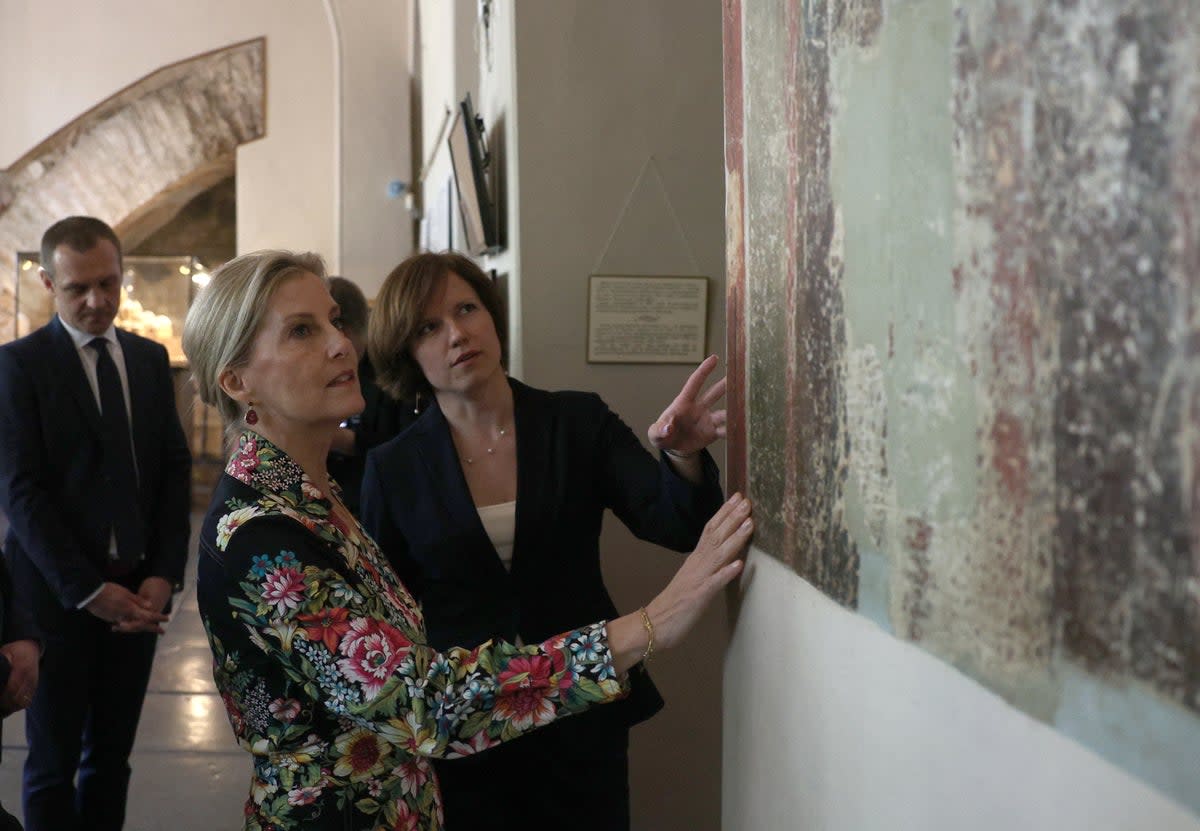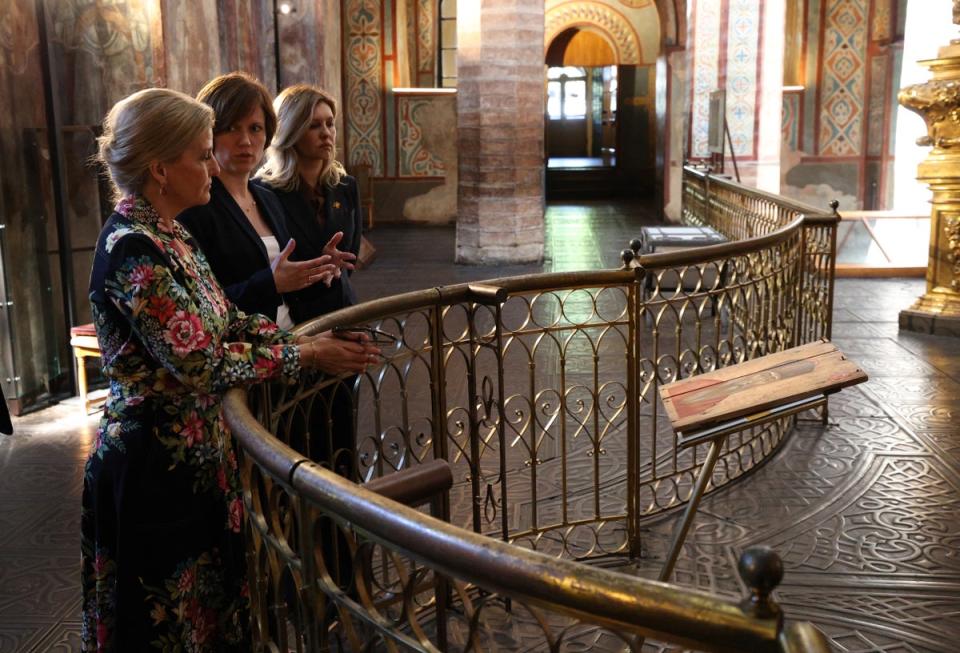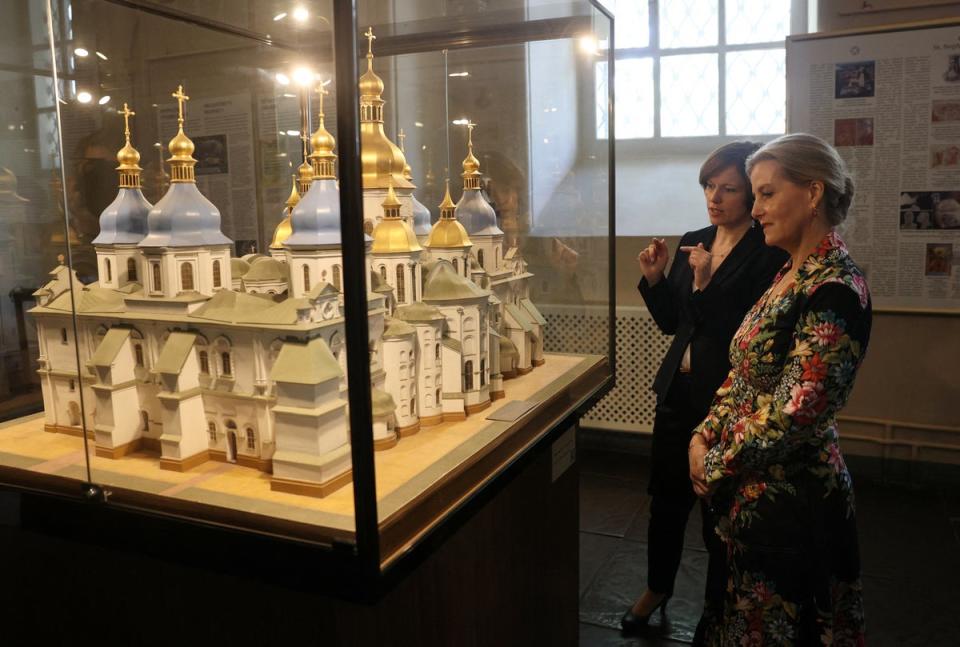Sophie, Duchess of Edinburgh, becomes first royal to visit Ukraine since Russian invasion

The Duchess of Edinburgh has become the first member of the royal family to visit Ukraine since Russia’s invasion, meeting president Volodymyr Zelensky and his wife in Kyiv.
Sophie, 59, made the surprise visit on behalf of the Foreign Office to show solidarity with those impacted by the war and as part of her work to champion survivors of conflict-related sexual violence, Buckingham Palace said in a statement.
The duchess champions the work of Preventing Sexual Violence in Conflict Initiative and the Women, Peace and Security agenda. She took on the role in 2019, on International Women’s Day.
While there, she met with survivors of conflict-related sexual violence and survivors of torture who shared their stories, as well as female volunteers who help their communities cope with the aftermath of the attacks with mental health care activities for children.
She also met with children who have now been safely returned to Ukraine, after being forcibly separated from their families and deported by Kremlin authorities into occupied territory or mainland Russia.
Ukraine says roughly 20,000 Ukrainian children, including thousands of orphans, have been kidnapped by Russia since the full-scale invasion in February 2022. Only around 400 have been returned.

The International Criminal Court last March issued an arrest warrant for Russian president Vladimir Putin and his children’s ombudsman Maria Lvova-Belova in relation to the abduction of children.
The duchess met with Mr Zelensky and first lady Olena Zelenska to discuss how best to support survivors of conflict-related sexual violence.
Addressing the Conflict-related Sexual Violence Conference last month, she said: “Survivors here and around the world have spoken out so bravely about their experiences.
“They are the most powerful advocates who remind us all that we must not turn our backs on the horrors of this crime, we must never forget survivors.
“Rather, we must stand shoulder to shoulder with all survivors to secure justice and holistic redress, and ensure that this crime isn’t an accepted part of conflict.

“Their rights and their voices must be at the heart of all our efforts to consign conflict-related sexual violence to the history books.”
The duchess also paid her respects to those who lost their lives in Bucha, a small town on the north western outskirts of the Ukrainian capital of Kyiv. It has been two years since the town was liberated from Russian occupation, during which Russian soldiers are believed to have committed war crimes against the civilian population.
She also visited the “Road to Life”, a bridge which became a key part of the Ukrainian resistance when it was blown up to stop Russian troops proceeding to Kyiv, and later became a vital route for people to flee to safety from the Russian occupation.
Since 2022, the UK has pledged over £4.7bn in non-military support to Ukraine. This includes over £660m of bilateral assistance that prioritises the needs of women and girls, for example by funding vital services for survivors of Gender Based Violence, as well as working with the Office of the Prosecutor General to put survivors at the centre of approaches to prosecuting conflict-related sexual violence crimes.


